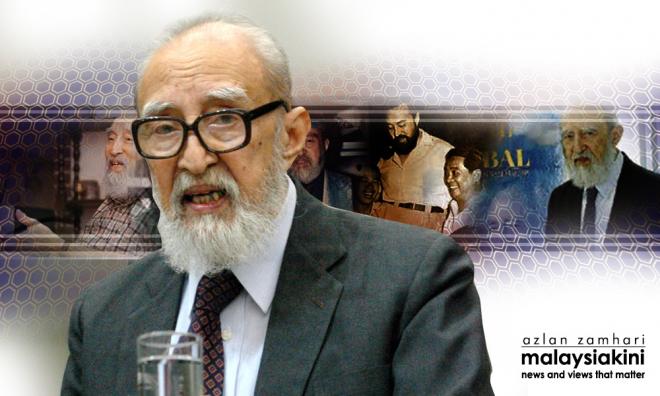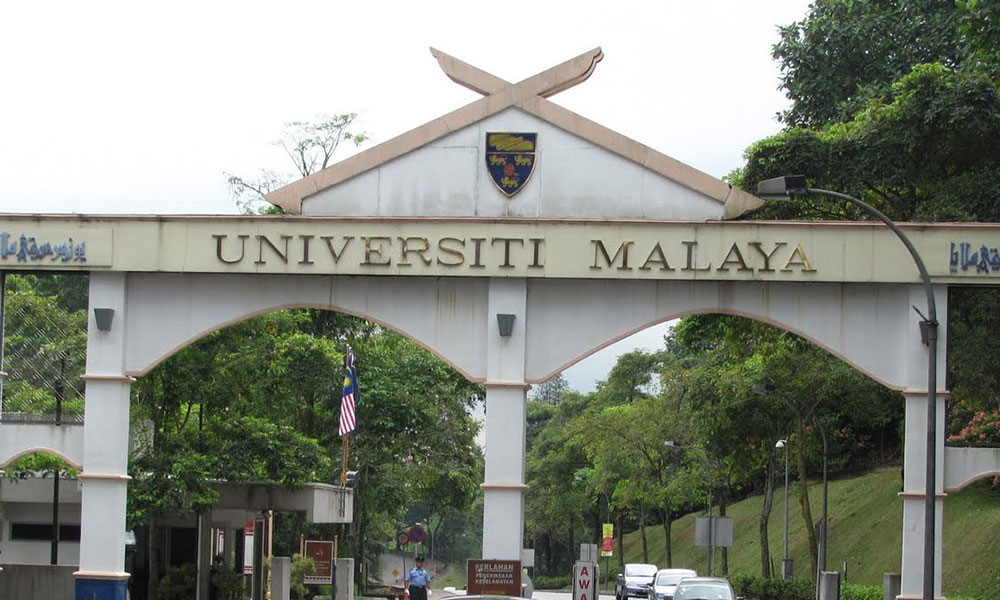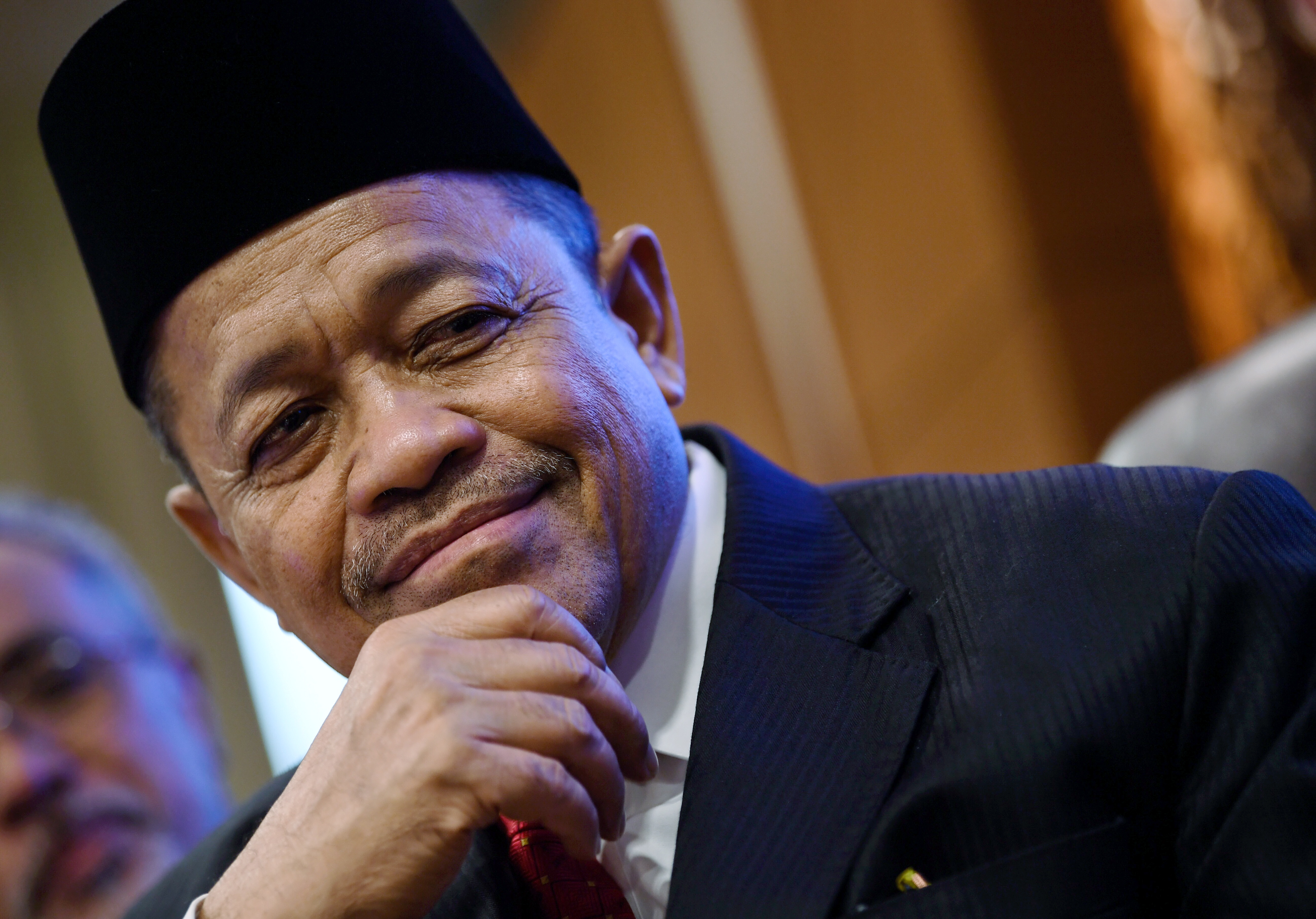
Confronting evil and the fool in society
by Sharifah Munirah Alatas
by Sharifah Munirah Alatas
Many people have asked me why my father, the late Syed Hussein Alatas, joined politics.
Times were very different in the 1950s and early 1960s, both globally and in Malaysia. Syed Hussein studied the decolonising movements then erupting around the world.
He was attracted to the ideas of the Indian, Indonesian, Latin American and African intellectual awakenings. These home-grown developments were ignited by anti-colonial, people-centred passions in response to the injustices of colonial administration.
Syed Hussein studied similar popular uprisings and reform agendas around Southeast Asia. He focused on the role of intellectuals in conceptualising and exposing the failure of political leadership.
In the process, Syed Hussein hoped to mobilise political and social consciousness in Malaysia. He did this in a number of ways, as co-founder of Gerakan, through his academic and popular writings, conference papers, public lectures and political statements.
My father hoped for a similar intellectual awakening in Malaysia. He hoped that the awakening that was taking place around the rest of the colonised, third world would gain momentum in his own country. His idealism was manifest in his deep passion for reading the works of Western and non-Western revolutionary thinkers, something our current political leaders do not care to think about.
In his book Intellectuals in Developing Societies (1977) he refers to thinkers and revolutionaries such as Jose Rizal, Herbert Spencer, Jamaluddin Afghani, Mohd Natsir, Rabindranath Tagore, Karl Mannheim and Ivan Goncharov. Till his death in 2007, Syed Hussein lamented that an intellectual awakening among the political leadership and the Malay elite, which would filter down to the rest of society, never happened in Malaysia.
He also warned that it may never happen for generations to come, given the neo-colonial feudal mentality among leaders, the receptiveness of such values in society, the penchant for the abuse of power, self-aggrandisement, the worship of excessive wealth and the politicisation of education. His book The Myth of the Lazy Native (1977) addresses these issues in detail.
Syed Hussein co-founded Gerakan because of his desire to inject an ideological and intellectual dimension into Malaysian politics. He and the other co-founders believed that Gerakan had the potential to be firmly grounded in an ideology that would help in our nation-building agenda. This fell apart once ethnocentric politics gained ground, which culminated in the May 13, 1969 events.
By the beginning of the 1980s, Syed Hussein was convinced that politics in Malaysia had become a confused and unethical mess because of the absence of an ideology. We should ask our politicians today, what is their party’s or our nation’s ideology. Will we get a definitive answer? My guess is no. At best, we will get a list of policies devoid of ideas. At worse, we will be asked in return, “What do you mean by ideology?”
Times were very different in the 1950s and early 1960s, both globally and in Malaysia. Syed Hussein studied the decolonising movements then erupting around the world.
He was attracted to the ideas of the Indian, Indonesian, Latin American and African intellectual awakenings. These home-grown developments were ignited by anti-colonial, people-centred passions in response to the injustices of colonial administration.
Syed Hussein studied similar popular uprisings and reform agendas around Southeast Asia. He focused on the role of intellectuals in conceptualising and exposing the failure of political leadership.
In the process, Syed Hussein hoped to mobilise political and social consciousness in Malaysia. He did this in a number of ways, as co-founder of Gerakan, through his academic and popular writings, conference papers, public lectures and political statements.
My father hoped for a similar intellectual awakening in Malaysia. He hoped that the awakening that was taking place around the rest of the colonised, third world would gain momentum in his own country. His idealism was manifest in his deep passion for reading the works of Western and non-Western revolutionary thinkers, something our current political leaders do not care to think about.
In his book Intellectuals in Developing Societies (1977) he refers to thinkers and revolutionaries such as Jose Rizal, Herbert Spencer, Jamaluddin Afghani, Mohd Natsir, Rabindranath Tagore, Karl Mannheim and Ivan Goncharov. Till his death in 2007, Syed Hussein lamented that an intellectual awakening among the political leadership and the Malay elite, which would filter down to the rest of society, never happened in Malaysia.
He also warned that it may never happen for generations to come, given the neo-colonial feudal mentality among leaders, the receptiveness of such values in society, the penchant for the abuse of power, self-aggrandisement, the worship of excessive wealth and the politicisation of education. His book The Myth of the Lazy Native (1977) addresses these issues in detail.
Syed Hussein co-founded Gerakan because of his desire to inject an ideological and intellectual dimension into Malaysian politics. He and the other co-founders believed that Gerakan had the potential to be firmly grounded in an ideology that would help in our nation-building agenda. This fell apart once ethnocentric politics gained ground, which culminated in the May 13, 1969 events.
By the beginning of the 1980s, Syed Hussein was convinced that politics in Malaysia had become a confused and unethical mess because of the absence of an ideology. We should ask our politicians today, what is their party’s or our nation’s ideology. Will we get a definitive answer? My guess is no. At best, we will get a list of policies devoid of ideas. At worse, we will be asked in return, “What do you mean by ideology?”

Syed Hussein was sure that the leadership’s dismissive attitude to anything intellectual is the primary reason we argue about concepts such as meritocracy, equity, human rights, innovative research and critical thinking.
Lecturers in many of our public universities, for example, are still unsure of what the “critical” component is in this critical thinking!
In Syed Hussein's mind, there was nothing strange about a politician who was also an intellectual. Today, the two are kept apart, due to a combination of ignorance and a deliberate agenda to silence progressive thinking.
Progressive or “liberal” thinking is deemed a threat and is sinful. This is reinforced by the butchering of true Islamic teachings, rampant throughout society, via khutbah and national and religious school curricula.
Syed Hussein's books Intellectuals in Developing Societies, Islam dan Sosialisme (1976) and Cita Sempurna Warisan Sejarah (2000) discuss these themes in detail. Have our leaders read them? Will they? Or do they feel that they are above such academic “mumbo-jumbo”?
Manipulation of wealth
My father believed that the only way Malaysia could begin to crawl out of backwardness was through a political system based on socialism. His book Islam dan Sosialisme was written in the mid-1970s when socialism was dismissed as un-Islamic. Look at us today, smack in the Covid-19 era. We have begun to question globalisation and capitalism. Is the time not ripe to revisit socialism?
There was one reason Syed Hussein got into politics. This was to confront evil and the “fool” in society. He was intellectually fascinated with the concept of evil in humans, as well as the role given to the fool in leadership positions. Syed Hussein had originally wanted his book Intellectuals in Developing Societies to be titled “The Revolution of the Fool”.
In the early 2000s, he thought about writing a book on evil. This desire was heightened after his horrendous experience in Universiti Malaya. In fact, he was preoccupied with the concept of evil and criminality throughout his life, hence his life-long scholarly contributions in the field of corruption, extremism, colonial capitalism, exploitative and oppressive leadership, domination and social democracy.
Since the 1950s, he was obsessed with how humans had the capacity to be evil and to construct false narratives to justify it. He studied the sociology of evil, how it drove leaders to unmentionable acts of oppression, manipulation of wealth, greed and the manipulation of religion to suppress the marginalised, to create a society that served vanity and personal ego.
His passion to eradicate the evil in leadership came one full circle after his cancer diagnosis in 2006. He did not survive to write his book on evil. There are fledgling notes from his readings of books such as In Praise of Meekness by Norberto Bobbio. This narrative is beautifully expounded in The Life in the Writing Syed Hussein Alatas: Author of the Myth of the Lazy Native by my sister, Masturah Alatas (2010).
Lecturers in many of our public universities, for example, are still unsure of what the “critical” component is in this critical thinking!
In Syed Hussein's mind, there was nothing strange about a politician who was also an intellectual. Today, the two are kept apart, due to a combination of ignorance and a deliberate agenda to silence progressive thinking.
Progressive or “liberal” thinking is deemed a threat and is sinful. This is reinforced by the butchering of true Islamic teachings, rampant throughout society, via khutbah and national and religious school curricula.
Syed Hussein's books Intellectuals in Developing Societies, Islam dan Sosialisme (1976) and Cita Sempurna Warisan Sejarah (2000) discuss these themes in detail. Have our leaders read them? Will they? Or do they feel that they are above such academic “mumbo-jumbo”?
Manipulation of wealth
My father believed that the only way Malaysia could begin to crawl out of backwardness was through a political system based on socialism. His book Islam dan Sosialisme was written in the mid-1970s when socialism was dismissed as un-Islamic. Look at us today, smack in the Covid-19 era. We have begun to question globalisation and capitalism. Is the time not ripe to revisit socialism?
There was one reason Syed Hussein got into politics. This was to confront evil and the “fool” in society. He was intellectually fascinated with the concept of evil in humans, as well as the role given to the fool in leadership positions. Syed Hussein had originally wanted his book Intellectuals in Developing Societies to be titled “The Revolution of the Fool”.
In the early 2000s, he thought about writing a book on evil. This desire was heightened after his horrendous experience in Universiti Malaya. In fact, he was preoccupied with the concept of evil and criminality throughout his life, hence his life-long scholarly contributions in the field of corruption, extremism, colonial capitalism, exploitative and oppressive leadership, domination and social democracy.
Since the 1950s, he was obsessed with how humans had the capacity to be evil and to construct false narratives to justify it. He studied the sociology of evil, how it drove leaders to unmentionable acts of oppression, manipulation of wealth, greed and the manipulation of religion to suppress the marginalised, to create a society that served vanity and personal ego.
His passion to eradicate the evil in leadership came one full circle after his cancer diagnosis in 2006. He did not survive to write his book on evil. There are fledgling notes from his readings of books such as In Praise of Meekness by Norberto Bobbio. This narrative is beautifully expounded in The Life in the Writing Syed Hussein Alatas: Author of the Myth of the Lazy Native by my sister, Masturah Alatas (2010).

Syed Hussein was diagnosed with stage four cancer in early 2006. He was not directly involved in any political party after he left Universiti Malaya as vice-chancellor (VC). This was after he was unceremoniously disgraced, by the very politicians who urged him to “put UM back on the right path”.
These leaders encouraged him to leave a rewarding career at the National University of Singapore (NUS) to return to Malaysia to revamp the university. Syed Hussein believed, for one last time, that maybe he could bring about change in the university by being at the helm. He knew that education was the key to reforming a declining society.
However, he rapidly became disillusioned with Malaysian politics, which is ethnocentric, hypocritical and extremely un-Islamic. He was also against the politicisation of education and the ethnocentric games that infiltrated university administration via political interference.
After resigning as VC, he continued his active academic life. He decided it was useless to eradicate corruption and introduce meritocracy in the university system, despite being in a position of authority.
Syed Hussein felt that leaders in Malaysia were not interested in the plight of ordinary citizens. They are not interested in lifting the poor out of poverty. Since a majority of the poor are Malays, he felt the leadership consciously kept the masses poor in order to remain in power. This leadership used religion to keep the poor subdued, with a false consciousness of hope for a better future.
Syed Hussein also believed that our leaders are not completely ignorant. Instead, he believed most are deliberately exploiting the less advantaged to further their need for excessive material wealth and power.
Till his death, he criticised the crude material ambitions of leadership, and how it has ruined the nation. Corruption was the key problem highlighted in all his analyses, writings, talks and debates.
SHARIFAH MUNIRAH ALATAS is an academic with zero tolerance for corrupt, arrogant, and frivolous leadership.
These leaders encouraged him to leave a rewarding career at the National University of Singapore (NUS) to return to Malaysia to revamp the university. Syed Hussein believed, for one last time, that maybe he could bring about change in the university by being at the helm. He knew that education was the key to reforming a declining society.
However, he rapidly became disillusioned with Malaysian politics, which is ethnocentric, hypocritical and extremely un-Islamic. He was also against the politicisation of education and the ethnocentric games that infiltrated university administration via political interference.
After resigning as VC, he continued his active academic life. He decided it was useless to eradicate corruption and introduce meritocracy in the university system, despite being in a position of authority.
Syed Hussein felt that leaders in Malaysia were not interested in the plight of ordinary citizens. They are not interested in lifting the poor out of poverty. Since a majority of the poor are Malays, he felt the leadership consciously kept the masses poor in order to remain in power. This leadership used religion to keep the poor subdued, with a false consciousness of hope for a better future.
Syed Hussein also believed that our leaders are not completely ignorant. Instead, he believed most are deliberately exploiting the less advantaged to further their need for excessive material wealth and power.
Till his death, he criticised the crude material ambitions of leadership, and how it has ruined the nation. Corruption was the key problem highlighted in all his analyses, writings, talks and debates.
SHARIFAH MUNIRAH ALATAS is an academic with zero tolerance for corrupt, arrogant, and frivolous leadership.
+++
A Malaysiakini reader 'Dr D' wrote:
The main culprit was none other than Shahidan Kassim. Prof Alatas was pressured to resign, while Shahidan Kassim became a life long career politician.
Star Online:
Shahidan Kassim freed of molest charges
Wednesday, 24 Apr 2019, 7:46 AM MYT
***
Star Online:
Shahidan Kassim freed of molest charges
Wednesday, 24 Apr 2019, 7:46 AM MYT

KANGAR: Arau MP Datuk Seri Shahidan Kassim has been given a discharge not amounting to an acquittal by the Sessions Court here for the alleged molest of an underage girl.
The decision to discharge Shahidan was delivered in chambers by Judge Ainul Shahrin Mohamad after the victim retracted her report.
The court heard the testimony of three witnesses, including the complainant, before coming to a decision.
Shahidan's lawyer Zamri Ibrahim said since the complainant had withdrawn the case after testifying, the case would now be withdrawn and the bail returned.
Shahidan was charged with sexually assaulting the girl, then aged 15 years and seven months, by holding her shoulder and her left hand in a vehicle at the compound of Tuanku Syed Putra Stadium at about 11.30pm on Oct 20 last year.
The former minister was charged under Section 14(a) of the Sexual Offences Against Children Act 2017, which provides for imprisonment of up to 20 years and whipping if convicted.
The decision to discharge Shahidan was delivered in chambers by Judge Ainul Shahrin Mohamad after the victim retracted her report.
The court heard the testimony of three witnesses, including the complainant, before coming to a decision.
Shahidan's lawyer Zamri Ibrahim said since the complainant had withdrawn the case after testifying, the case would now be withdrawn and the bail returned.
Shahidan was charged with sexually assaulting the girl, then aged 15 years and seven months, by holding her shoulder and her left hand in a vehicle at the compound of Tuanku Syed Putra Stadium at about 11.30pm on Oct 20 last year.
The former minister was charged under Section 14(a) of the Sexual Offences Against Children Act 2017, which provides for imprisonment of up to 20 years and whipping if convicted.
n the chinese in gerakan turn gerakan into a penang chinese party, socialism with penang chinese characteristic.
ReplyDelete